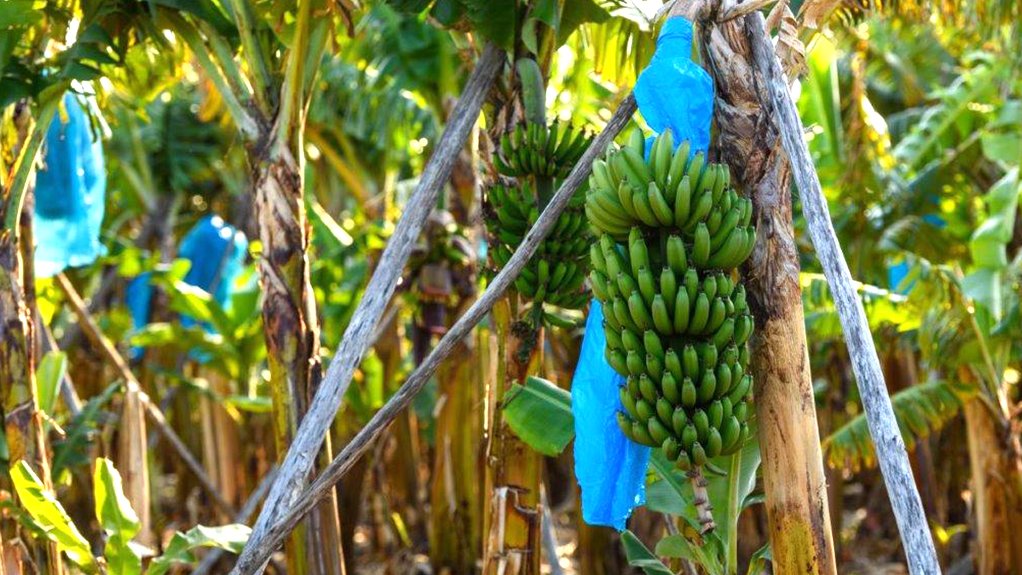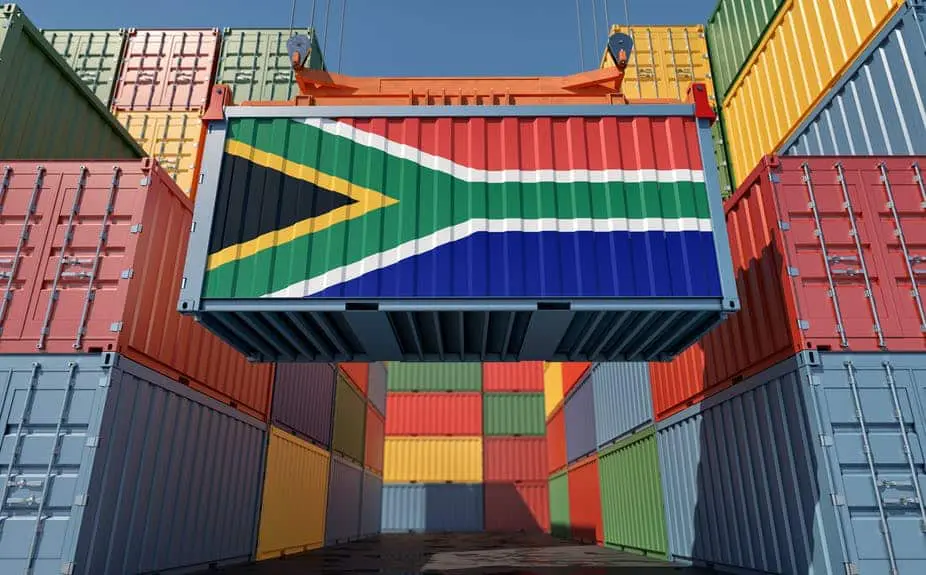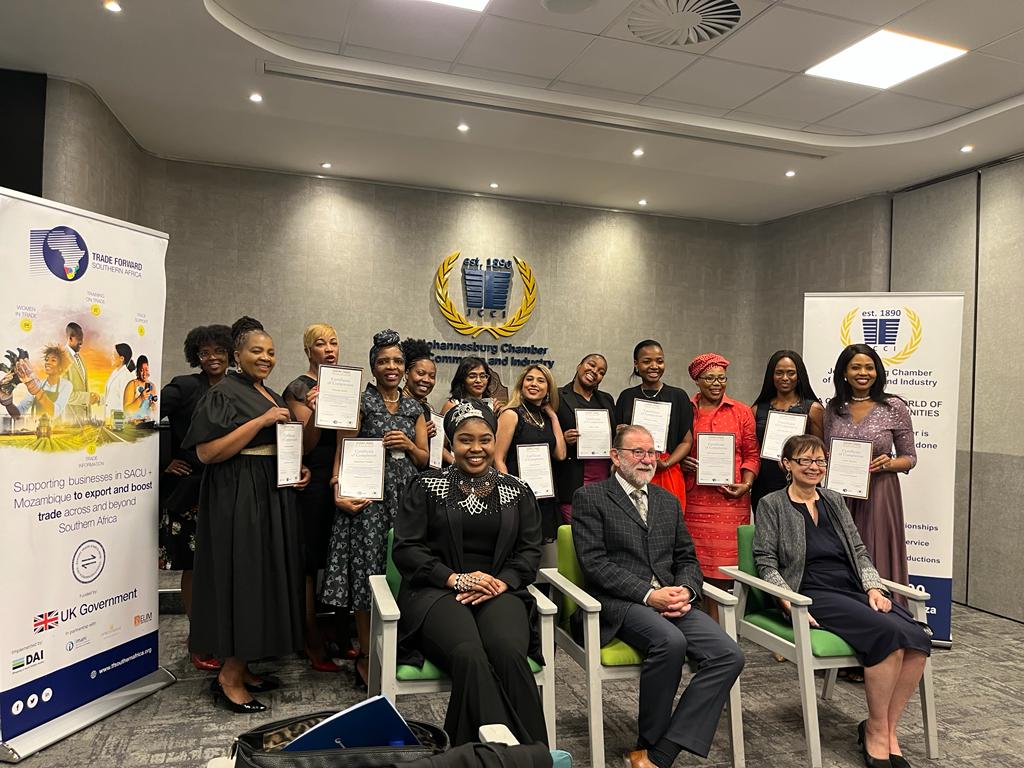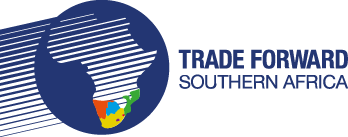Three of the five TFSA priority sectors are traditionally dominated by women entrepreneurs. By supporting trade and export in these sectors, women will consequently enjoy more opportunities to grow their businesses. Read more to learn if your business and products are included or could be included in our high-potential sectors export.
OUR PRIORITY SECTORS
TFSA provides targeted technical cooperation and capacity building to five priority sectors to help grow exports for high potential products. An assessment of the export profiles of the SACU+M countries (Botswana, Eswatini, Lesotho, Mozambique, Namibia, South Africa) guided the selection of these sectors, based on the potential for export growth. As well as the opportunities for unlocking export market barriers, promoting women’s inclusion in trade and effecting systemic change in the business support environment of the five sectors and commodity value chains identified:
- All exhibit a solid commercial base with significant presence of export-ready companies that require technical assistance to grow exports.
- Three (condiments and high speciality foods, cosmetics and natural ingredients, and fruits, nuts and vegetables) are traditionally women-dominated.
- As such, TFSA’s technical cooperation is expected to significantly impact women’s inclusion in the overall export trade in the region. The two primarily male-dominated sectors (aquaculture and green technology) present an opportunity to challenge the existing gender bias by increasing the visibility and participation of women in these innovative and rapidly growing sectors.
- All revealed regional synergies with shared interests and commodities shared by countries across the region. For instance, in the cosmetics and natural ingredients sector, other natural products such as marula and moringa were identified to be of high value in more than one country. And, in terms of common interests, challenges in complying with sector-specific international standards and regulatory requirements tended to be similar across the board.
| Sector | Botswana | Eswatini | Lesotho | Mozambique | Namibia | South Africa |
| Aquaculture | Tilapia | Abalone, oyster | Abalone, oyster | |||
| Condiments & High Value Speciality Foods | Gourmet jam, iced tea, biltong, sauce, mopane treat, hand crafted chocolate, Marula products | Jam, fruit jelly, marmalade, puree and paste, pineapple and citrus – prepared or preserved | ||||
| Cosmetics & Natural Ingredients used in Cosmetics | Marula and moringa oils, cosmetics using local natural ingredients | Rosehip | Natural ingredients (Kalahari melon, devil’s claw, moringa, nara, mongongo), cosmetics using local natural ingredients | Natural ingredients (aloe vera, baobab, moringa, mongongo), cosmetics | ||
| Fruits, Nuts and Vegetables | Citrus, stone fruit, banana | Berry, pea, apple, peach, legume (bean) | Pigeon pea, cowpea, kidney bean, sesame, cashew, minor/ speciality products | Raisin, dried fruit, macadamia, stone fruit, citrus, avocado, processed fruit | ||
| Green Technology | Light manufacturing in renewable energy |
TYPICAL CONSTRAINTS AND BARRIERS THAT HAMPER EXPORT TRADE
The most common constraints faced by companies wishing to start, or expand, their export trade to Southern Africa and beyond include:
- Navigating and accessing information to the necessary steps, processes and logistics involved in exporting, and identifying potential target export markets.
- Ensuring compliance with often complex regulations and standards of export markets that vary across sectors and countries/regions. In some cases, COVID-19 has resulted in revised statutes, which present further challenges.
- Locally available testing and certification practices do not always meet international standards. Similarly, access to packaging and labelling that meet regulations, particularly for food and cosmetics, is a challenge for many companies.
- Ensuring correct classification – particularly for cosmetics and condiments where ingredients can also be classified as pharmaceutical products – is critical in understanding import tariffs but can be difficult to navigate.
- Poorly defined, or a complete lack of sector-wide product definitions and strategies hamper the effective branding of specific product groups.
- Smaller businesses lack sufficient access to information on the various public and private initiatives and resources countries have in place to support export growth.
- For women entrepreneurs and business leaders, socio-cultural issues remain a significant barrier to participating fully in export trade.
OUR SUPPORT AND SOLUTIONS TO ADDRESSING CONSTRAINTS
TFSA recognise that business support organisations (BSOs) have a vital role in ensuring that companies can build their technical capacity and increase their ability to unlock barriers to trade and benefit from existing export opportunities. The skills-building and export tips and guides we provide are targeted at and implemented in collaboration with carefully selected industry BSOs in the public and private sectors, including those that work specifically to further women’s opportunities in trade. To this end, the following activities have been identified as solutions to address critical constraints:
- Providing targeted sector- specific technical capacity-building support that will primarily be tailored to respond to the needs of women entrepreneurs and business leaders.
- Working through BSOs, facilitate and strengthen B2B market linkages between SACU+M suppliers and buyers in targeted regional and international markets.
- Developing tools and resources that help businesses and compliance institutions better understand and implement the appropriate measures to meet compliance requirements.
- Bridging gaps between entrepreneurs and business networks with existing resources and/or programmes supporting export growth to enhance the impact of the aforementioned activities.
HOW TO STAY INFORMED
- Follow us on our social media platforms (Facebook, LinkedIn and Twitter) and keep visiting our website for regular updates on sector initiatives.
- Read our TFSA Digests for current and sector-specific information and opportunities.
Coming soon: a call for proposals from BSOs to access the TFSA Drawdown Facility for technical assistance and capacity building support.
Coming in August 2021: a call for applications from women entrepreneurs, especially from the TFSA priority sectors, to apply to the Future
Females Business School TradeTech Programme – a pilot export trade programme in partnership with the UK-South Africa Tech Hub and TFSA.








